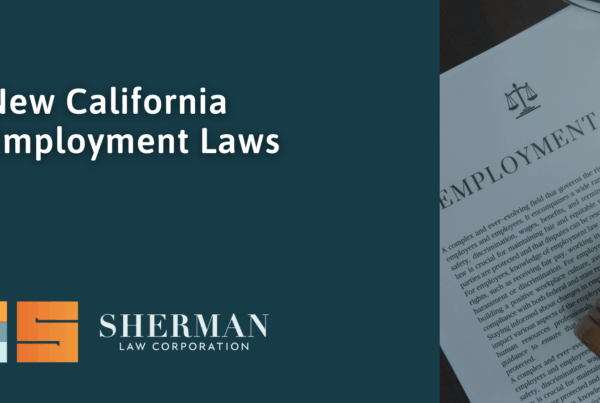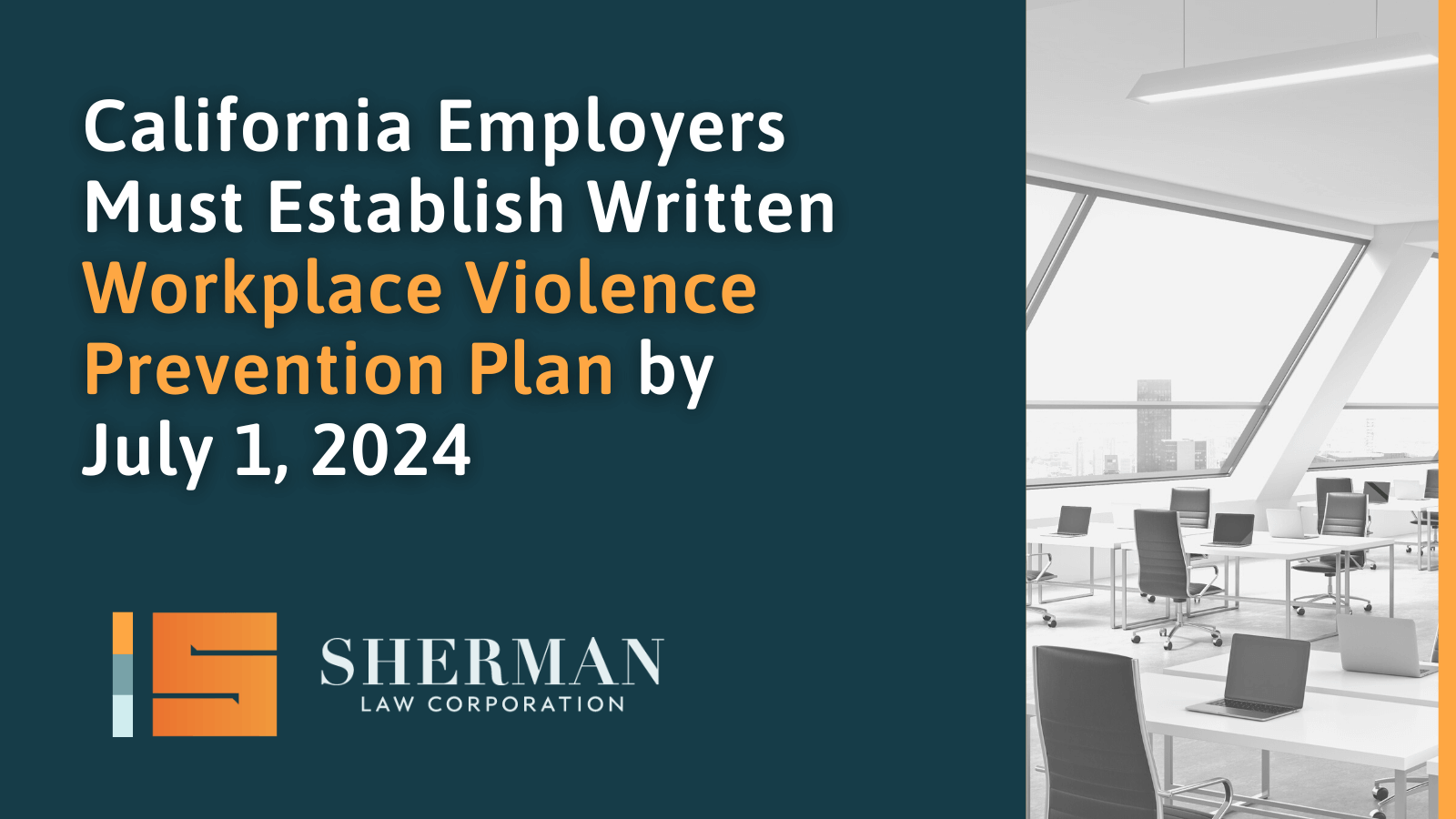

- CPS, the employer, proactively sought approval of its compensation plan and written agreements executed by each security guard, from the Department of Labor Standards Enforcement (“DLSE”), California’s state agency, to ensure that their compensation plan was compliant with federal and state law. The DLSE blessed CPS’ business plan and found it fully compliant.
- CPS’ plan complied with federal law which permitted the exclusion of sleep time from an employee’s 24 hour shifts and insured full payment to its employees at anytime they were required to perform work while on-call. Because California Wage Order 4 was silent to this issue, CPS performed comprehensive legal research on other wage orders and decisions in preparation of its plan. When the security guards were on-call, the guards were free to engage in their own personal pursuits. The trailers were not just required as a condition of employment, but were the primary residences for many of CPS’ employees.
CPS’ Compensation Plan:
CPS provides security to construction sites by employing guards who are present onsite and reside in trailers provided by CPS. By written agreement, an on-call security guard is required, as a condition of employment, to reside in a trailer provided by CPS. The trailers range from 150 to 200 square feet and have residential amenities including a bed, bathroom, kitchen, heating and air conditioning. When “on-call,” guards are free to use their time as they choose, however, they are prohibited from allowing children, pets, and consuming alcohol; adult visitors are only permitted, with the approval of the CPS construction site client who contracts with CPS to protect its properties. An on-call security guard who wants to leave the worksite is required to notify a dispatcher and indicate where the guard would be and for how long. If another employee was not available to provide relief, the guard was required to remain on-site, even if the guard had a personal emergency. If relieved, a guard still needed to be accessible by pager or radio phone and stay close enough to the site to be able to return within 30 minutes.
Guards are compensated as follows: They are paid hourly for the time spent patrolling the construction worksite. They receive no compensation for on-call time, unless (1) an alarm or other circumstance requires them to respond; (2) they wait for, or are denied, relief by another guard. Guards are paid for the actual time spent investigating disturbances on the worksite. If three or more hours of investigation is required during their on-call time, the guard is paid for the full eight hours.
Two class action lawsuits were filed in 2008 by CPS’ guards claiming that CPS’ on-call policy violated minimum wage and overtime obligations imposed by the Industrial Welfare Commission (“IWC”) Wage Order 4 and California Labor Code statutes.
No Good Deed Goes Unpunished:
In 1996, as CPS’ business expanded and successfully grew, the DLSE began investigating CPS’ policy of excluding sleep time and its compensation practices. In a 1997 letter to CPS, the acting Labor Commissioner concluded that CPS could, pursuant to a written agreement, exclude sleep time. While it was disavowed by a new Labor Commissioner in 1999 and again in 2002, CPS did not ignore the DLSE’s change in position, but instead sought relief from the courts by filing a declaratory relief action asking the Court to guide them by reviewing their plan and ruling on its viability. Before trial, CPS and the Labor Commissioner signed a memorandum of understanding, permitting CPS to continue instituting its current on-call compensation policy with the Labor Commissioner holding that CPS’ policy complied with all applicable California Wage Orders, for which CPS relied upon. Despite CPS’ proactive position, the California Supreme Court rejected the DLSE’s past position giving no consideration for CPS’ legitimate reliance on the DLSE’s position and for its “good deed” of seeking guidance from the Court, which few employers do. CPS’ costly, proactive steps made no difference to the Court.
Although entitled to consideration and respect, the agency’s construction of wage orders is not binding on this court, especially when its stance has been vacillating and contradictory. [citation] Moreover, we note that, while the DLSE is charged with administering and enforcing California labor laws, it is the Legislature and the IWC that possess the authority to enact laws and promulgate wage orders. [citation omitted].
This means that CPS must now pay security guards for 24 hour shifts, even if they are sleeping or not working when on-call. Because of the retroactivity of this decision, CPS now owes California employees who were employed by CPS in the last four years past due compensation, including, penalties, and the attorneys’ fees associated with the two class actions currently pending, for the 16 hours per day that the security guards were not compensated.
The Basis of the Court’s Ruling:
Essentially, the California Supreme Court concluded that CPS’ compliance with federal law that expressly permitted exclusion of sleep time was irrelevant in determining if CPS’ policy was compliant with California law because California “is free to offer greater protection.” Wage and hour claims under California law are governed by two “complementary and occasionally overlapping sources of authority: the provisions of the Labor Code, enacted by the [California] Legislature, and a series of 18 wage orders, adopted by the IWC.” Brinker Restaurant v. Superior Court (2012) 53 Cal.4th 1004, 1026. Of the 18 wage orders specifying the minimum requirements governing wages, hours and working conditions, “16 cover [] specific industries and occupations, one cover[s] all employees not covered by an industry or occupation order …. The number of wage orders, and internal variations, reflects the reality that differing aspects of work in differing industries call for different kinds of regulation.”
In reviewing the various wage orders defining “hours worked” the Court looked to Wage Orders 5 and 9 which both explicitly excluded sleep time for certain types of employees, such as ambulance workers and employees working with children. With a simplistic interpretation, the Court, in contrast, determined that nothing in the catch-all Wage Order 4 addressed, let alone, excluded any specific category of employees’ sleep time. Based on nothing more, the Court concluded that the IWC did not intend to exclude CPS, or any other employers covered under Wage Order 4, because if the IWC wanted to exclude sleep time, they would have said it. The Court also compared the definition of “hours worked,” noting that Wage Order 5, which applies to public housekeeping workers, contained additional language in its definition stating “in the case of an employer who is required to reside on the employment premises, that time spent carrying out assigned duties shall be counted as hours worked (Wage Order 5, subd. 2(k)(emphasis added). Since no similar language was included in Wage Order 4, the Court concluded that the IWC did not intend to limit it. In making this ruling, the Court went so far to state that it did not even matter if the employee was working or not during on-call hours when they were residing on the premises, because nothing in Wage Order 4 directed them to even consider it. It is important to note that the Court did consider the role of CPS’ security guards as a deterrent by their mere presence on the construction sites. The Court stated:
Of course an employer, if he chooses, may hire a man to do nothing or to do nothing but wait for something to happen. Refraining from other activity often is a factor of instant readiness to serve, and idleness plays a part in all employments in a stand-by capacity. Readiness to serve may be hired, quite as much as service itself, and time spent lying in wait for threats to the safety of the employer’s property may be treated by the parties as a benefit to the employer.
Critical to the Court’s decision was the fact that the guards were required to reside in their trailers as a condition of employment and spend on-call hours in the trailers or elsewhere at the worksite. They were obligated to respond immediately and, in uniform, if contacted; the guards could not easily trade on-call responsibilities and were required, even if relieved, to report where they were going and remain no more than 30 minutes away from the site. Moreover, restrictions on nonemployee visitors, pets and alcohol use all weighed in favor of finding that the on-call time spent was primarily for the benefit of CPS. The fact that the guards could engage in “limited personal activities does not lessen the extent of CPS’s control,” a devastating blow to California employers in evaluating on-call situations.
California Employer Take-Aways from this Decision:
First, any California employer who employs workers who are required as a condition of employment to reside on the premises and/or permitted sleeping time must analyze its policies and compensation practices to ensure that it is compliant with this decision as it is not merely limited to security guards, but has widespread implications to all workers governed by the catch-all Wage Order 4, including domestic employees, or any other Wage Order that is similar to Wage Order 4.
Second, California employers who are in CPS’ position, must address the retroactivity of the law, and how they will respond to any claims (including class actions) by their current and former employees who were not paid for on-call time where they did not work.
Third, California employers affected by this decision should band together to lobby the IWC and California legislature to pass legislation to permit exclusion of on-call/sleep time as this decision will likely chase California employers out of California, or even out of business.
Fourth, for the California employers who are not directly affected by this ruling, this decision is a reminder that just because you comply with federal law or the DLSE finds your compensation plan compliant, does not immune your Company from liability! For employers who employ on-call employees at all, it is prudent to re-address this arrangement.
Lastly, is the California Supreme Court’s decision a sign of things to come for California employers? Suitable seating is next up!
What the California Supreme Court Decision in Mendiola v. CPS Did Not Tell You….
I was fortunate enough to work closely with CPS, and its President, Christopher Coffey, in the mid-1990’s when they were developing this business and the compensation plan at issue. What is truly unfortunate by this decision is that CPS, its executive management, in-house and outside legal counsel, worked tirelessly and proactively to do the right thing at all times. I do not believe I have met any executives who have been as proactive as CPS and willing to spend their own money time-and-time again to ensure that they were compliant and that their employees were taken care of at all times. Where Wage Order 4 was silent in addressing this situation and CPS worked closely with the Labor Commissioner in employing its plan, the effect of this decision nullifies its own agency and punishes a prudent employer who went way beyond what any other employer is expected to do, at what amounts to an insurmountable, crippling cost.
What is left out of this opinion is a critical unknown fact — many of these employees who joined CPS in the mid-1990’s were homeless and hard on their luck before joining CPS. CPS has not only provided these employees with a home, when many of them wandered from shelter-to-shelter, and had none, but CPS has trained them and as best summed up on the CPS website treated all of them like family, which is simply ignored. CPS states on its website:
“Once we find them, we like to hang on to them. We offer a number of benefits to provide the best experience for an employee, inviting them to make us their career. These benefits include:
- A 401(k) Plan, tiered based on how long an employee has been with the company, and with up to a 75% company match. This means that for every bit employees put into the 401(k), we’ll match up to 75%. $100 can turn into $175 just like that.
- Great employee-management relations. Unlike many companies, CPS Security ensures that employees and management are able to communicate clearly with one another so that the highest levels of customer satisfaction can be obtained.
- Comprehensive medical plans that provide the most coverage at the best value for employees and their families
- Free life insurance for all full time employees, with optional riders that extend to immediate family.
- Performance incentives to give employees the latest bit of boost they need to go above and beyond the call of duty.”
While this decision will have devastating consequences to CPS’ business, as well as, countless others, if this decision is not overturned or corrected by the Legislature, the very employees the Court seeks to protect by this decision, will suffer far greater losses than what could possibly have been intended by the Court. For many of the employees who do not have any other home or roof over their head, employers under Wage Order 4 will no longer be able to permit its employees to live in the trailers when they are not on active duty. Obviously, the implications are significant. Instead, these employees will be no different than any other California employee who reports to work for eight hour shifts. Not only will they need to find a new home but also transportation to and from work. Of course, this is only if CPS, and similar employers affected by the retroactive application of this decision, can even fend off the slew of class actions and lawsuits that will continue to plague them. For CPS who operates in other states, there will be no incentive for them to continue operating in California, after they not only played by the rules, but actively sought and relied upon the state agency in charge of instituting and interpreting these laws.




